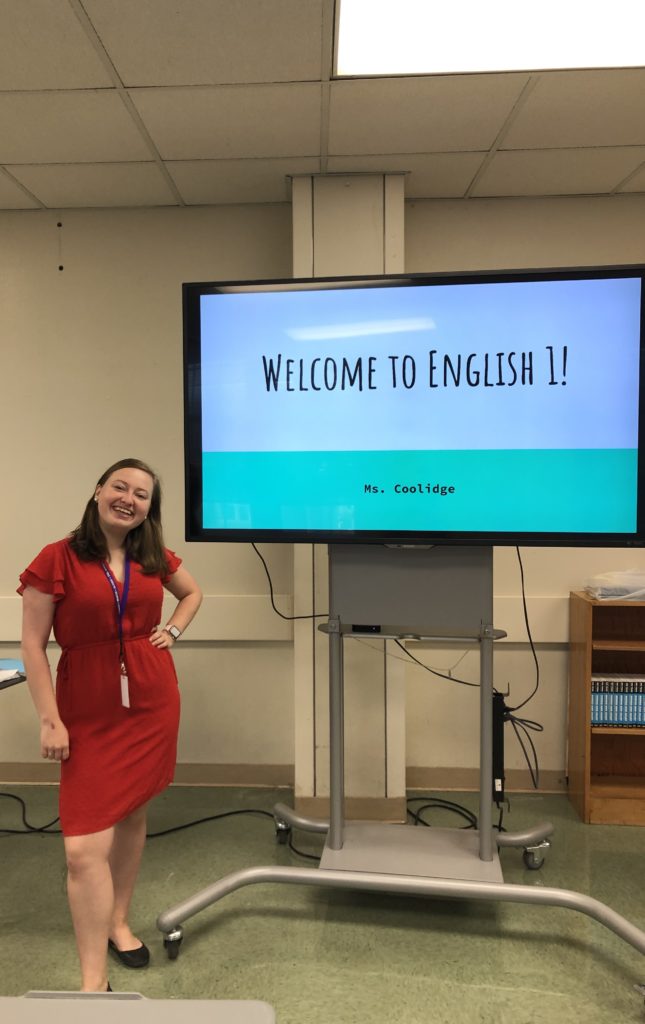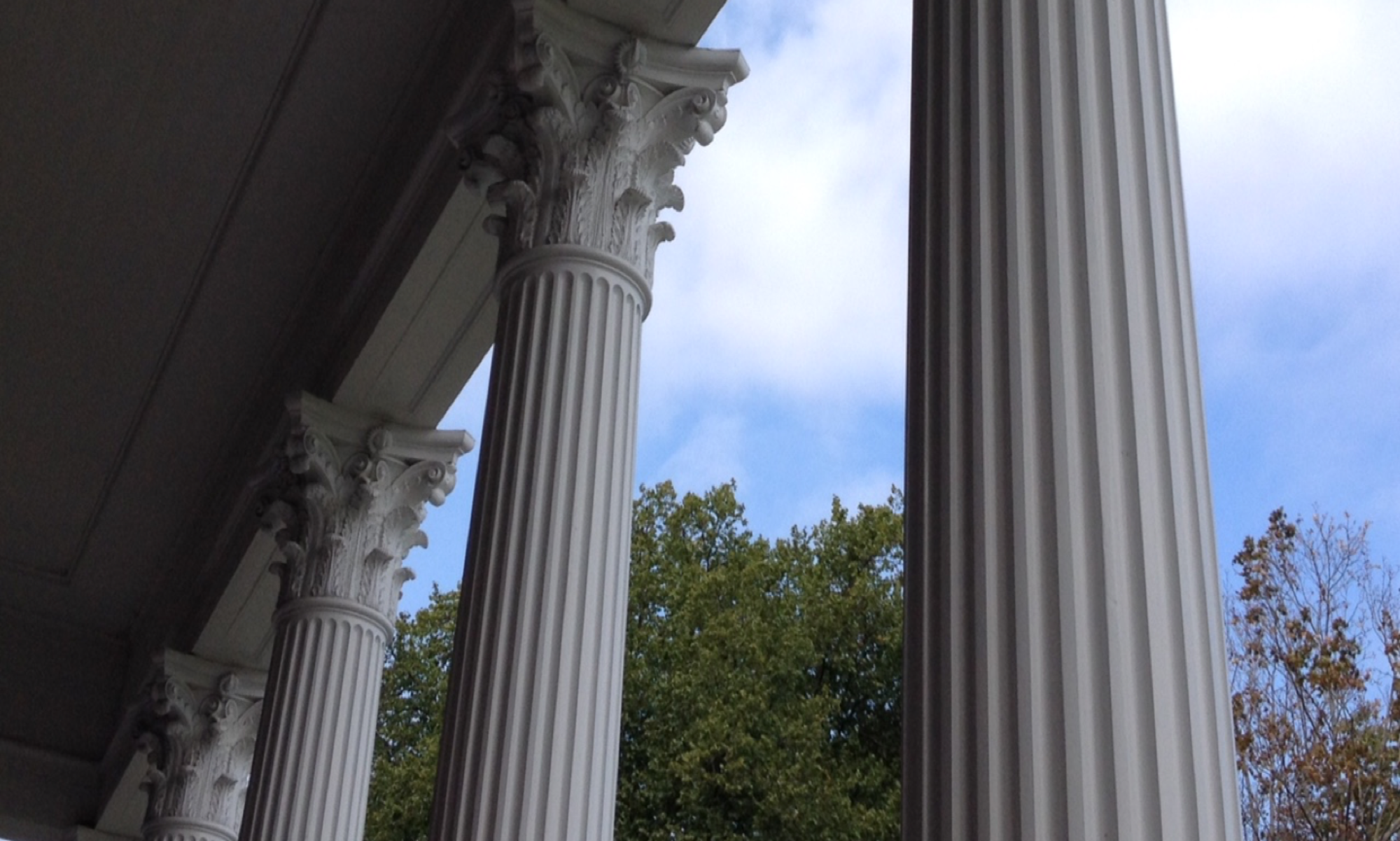Meredith Coolidge ’19 is teaching English and tutoring Latin at the Young Men’s Leadership Academy at Wheatley in San Antonio, TX, through the Teach for America program. At Holy Cross Meredith was a double-major in Classics and Political Science, and in 2018-19 she served as Student Government Association Co-President.
The classics major at Holy Cross is distinct because of its Jesuit affiliation. I was fortunate to take classes with professors and on course material that encouraged me to unlearn or see differently many of the ways the classics has been applied throughout history. By the end of my college career, I found myself reading the classics from a new perspective, namely, “How does this inform how I am becoming a person for and with others?”
Through Teach for America, I was placed in San Antonio, TX as a high school teacher at a Title 1, all-boys, public charter academy. Our school is located on a historically-black campus named for famous classicist and poet Phillis Wheatley.

Studying Latin is especially useful for my English Language Learners. I acquired an ESL certification because most of my students speak Spanish, and Latin has been a helpful way to contextualize commonalities between the Spanish and English languages. It also helps my students, most of whom will be the first in their families to graduate from high school, stand out with rigorous course loads as they consider applying to colleges like Holy Cross. I don’t know if there is anything more substantial to set up students for the rigor of a college education than requiring Latin beginning in middle school.
As an English teacher/Latin tutor, I try to find ways to make Latin “cool” and “relatable” (and not just because my kids perhaps ironically call me Ms. Cool). We’ve played word games with Latin prefixes, read mythology, and applied Latin syntactical principles to better understand the functions of English words, which has already improved my kids’ writing and reading comprehension. Explicitly teaching a critical subject (a core, state-tested one) but having a Classics background has helped normalize taking Latin for my students and colleagues.
I did not anticipate my Teach for America experience to be so profoundly influenced by my undergrad major, partially because before I left Holy Cross, I didn’t always see the link with liberation that I see now. I’ve realized my favorite classics courses at Holy Cross were ones in which I saw strong female characters or read texts I could relate to; I am hopeful that by framing characters in classical texts as liberators, my students can see themselves in the Ancient World. The themes in classical texts can be mostly universally applied to contemporary human experiences. It might be a stretch, but focusing on such commonalities in our shared human experience could help heal our increasingly polarized modern world.


